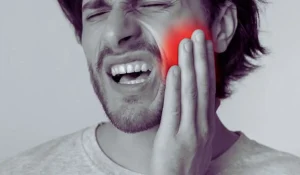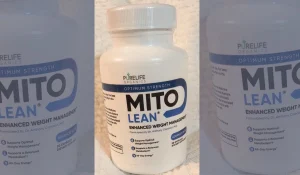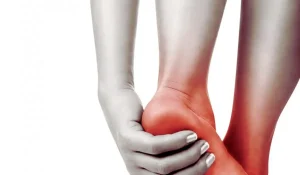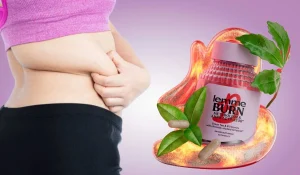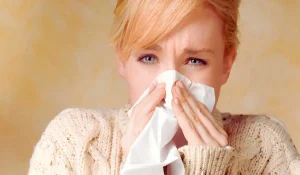Certain diets, including dairy, soy, and certain fats, are said to reduce the body’s levels of testosterone. However, there is little data on diets that reduce testosterone. Moreover, a natural rise in testosterone levels can be attained through regular exercise and maintaining a healthy weight.
Food and the diet of an individual determine many aspects of their health. Along with providing energy to the cells, food may affect other components, like hormones such as testosterone.
According to some research, high intakes of specific foods may cause some people’s testosterone levels to drop. Nevertheless, further research is required on most of these meals before determining whether or not they can suppress testosterone levels.
However, most of the research is outdated due to the use of nonhuman participants or based on small clinical trials.
Does Food Affect Testosterone Levels?

One of the major sex hormones in the human body is testosterone. Even though it is known as the male sex hormone, it is important for females as well. Testosterone increases muscle mass, bone mass, and body hair. The body usually does a good job of controlling hormones and maintaining their proper levels.
Some assert that excessively eating particular foods might obstruct this process and cause an imbalance in hormones. Limiting the following foods may be a decision made by those concerned about their testosterone levels. Some of the food items that are believed to affect testosterone levels are:
☑️ Soy products
Phytoestrogens, or estrogen-like compounds originating from plants, are abundant in soy. Previous research conducted in 2005 examined 35 men. It was discovered that consuming soy protein for 57 days caused testosterone levels to drop.
However, the study was small, as broad research was not conducted. Rats used in another study revealed that testosterone levels were lowered by phytoestrogen consumption.
Other studies on testosterone and soy, however, had contradictory findings. A 2009 study of 15 studies found no correlation between soy consumption and testosterone levels in men.
People with clinically low testosterone levels are advised to consume soy in moderation, as the research on this topic is contradictory.
☑️ Alcohol
Anyone worried about their testosterone levels should also cut back on or quit alcohol. This might apply particularly to men.
It is often not the case, yet some research has indicated that a small amount of alcohol raises testosterone levels in men. According to 2017 research, men’s testosterone levels decline if they drink heavily or frequently over extended periods. The study also mentions how drinking alcohol raises testosterone levels in women.
☑️ Peppermint and Spearmint
Peppermint and spearmint, popular teas, may reduce testosterone levels. An earlier 2010 study with forty-two women found that consuming spearmint herbal tea twice a day for thirty days significantly reduced testosterone levels.
In a different study, rats with PCOS received spearmint essential oil daily for 20 days. According to the study, the testosterone levels in the rats with PCOS were found to be reduced, proving that they can lower the testosterone levels. In another 2004 study on rats, peppermint tea reduced rats’ testosterone levels.
It’s challenging to state with certainty whether or not it can influence humans because most of these studies have been conducted on rats.
☑️ Bread and other Baked Goods
A 2018 study on Taiwanese men found that a diet rich in bread, pastries, and desserts lowered their total testosterone levels. High dairy consumption, frequent dining out, and insufficient consumption of dark green vegetables were other contributing factors. The study also found that these individuals had higher body fat and less muscle mass.
☑️ Licorice Root
According to a 2018 study, licorice roots reduced testosterone levels in healthy women during their menstrual cycles. Animal studies also proved the ability of licorice roots to lower testosterone levels.
☑️ Certain Fats
A person’s testosterone levels and function may also be impacted by the kind of fat they consume. A 2017 study examined the relationship between testicular function, hormone levels in young, healthy men and their eating habits.
According to the research, consuming trans fats may cause the body’s testosterone levels to drop. Additionally, they discovered that excess omega-6 fatty acids seemed to impair testicular size and function.
On the other hand, consuming plenty of polyunsaturated omega-3 fatty acids may enhance testicle function and growth.
Other Factors Affecting Testosterone Levels in the Human Body
- Aging
- Lifestyle
- Obesity
- Diabetes
- Excessive use of drugs, tobacco, and cannabis
Methods to Increase Testosterone Levels
- Including fresh foods and maintaining a balanced diet
- Avoiding overeating
- Preventing obesity by maintaining a healthy weight
- Regular exercise
- Maintaining a proper and adequate sleep schedule
Conclusion
It is important to maintain a balanced diet and regular exercise to maintain hormone balance in the body. Some people may claim that certain foods may affect hormone balance, especially testosterone.
However, there is no proper evidence for such claims, as most research was conducted on animals. Nevertheless, people concerned about their testosterone levels may follow a balanced diet prescribed by professional medical help.
References
- Jargin SV. (2014). Soy and phytoestrogens: Possible side effects.
https://www.ncbi.nlm.nih.gov/pmc/articles/PMC4270274/ - Loeb S, et al. (2017). Testosterone replacement therapy and risk of favorable and aggressive prostate cancer.
https://ascopubs.org/doi/10.1200/JCO.2016.69.5304


